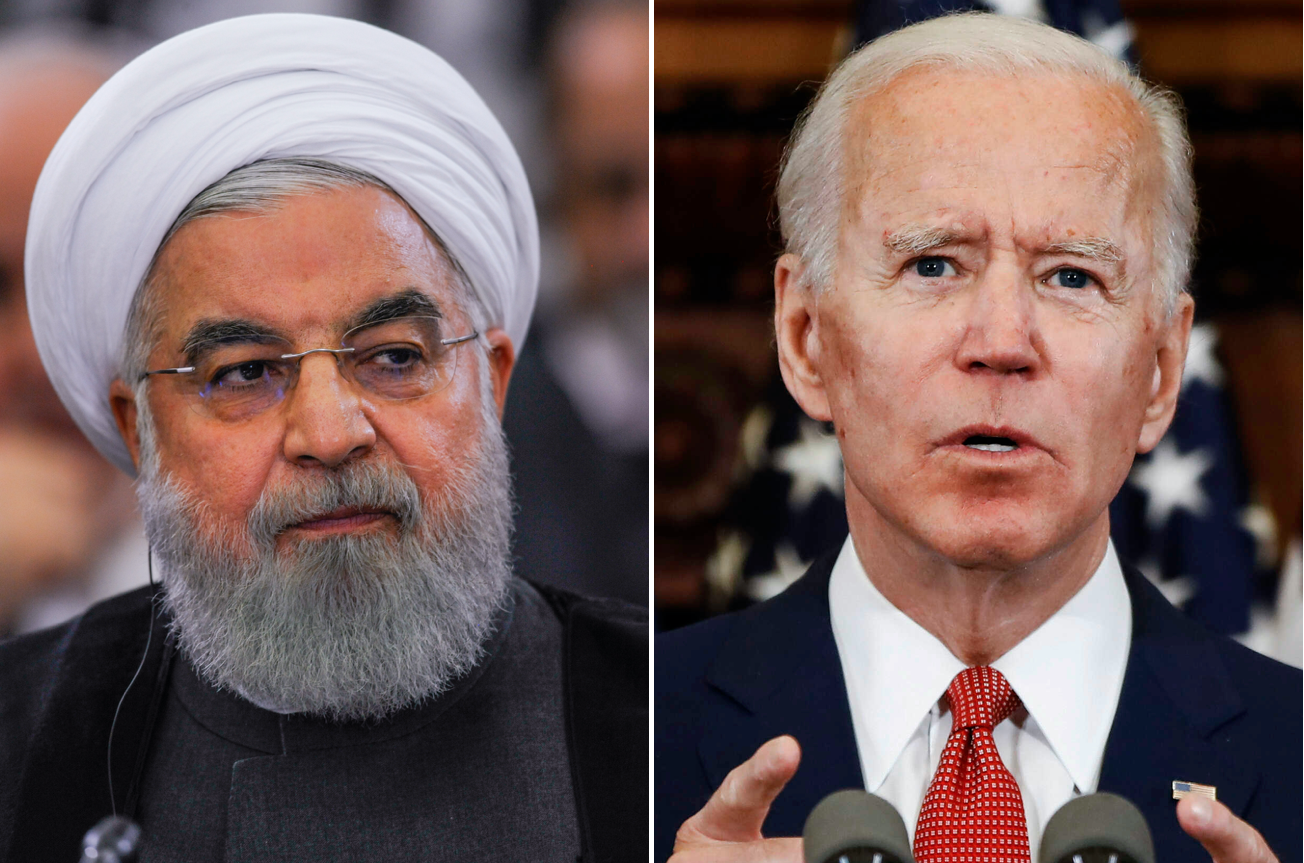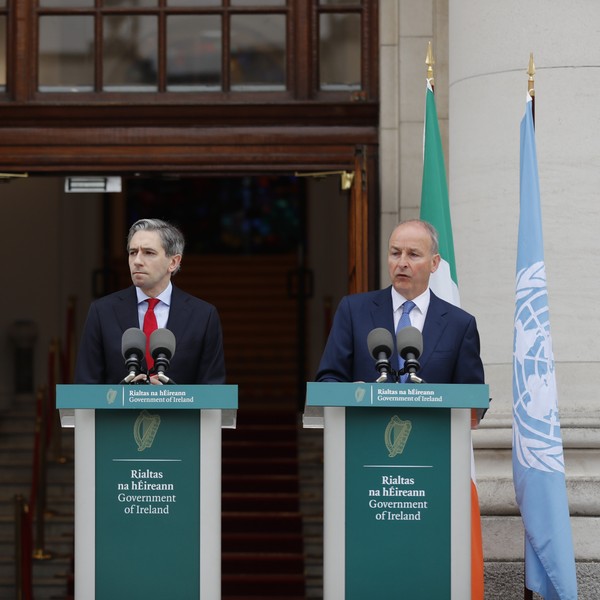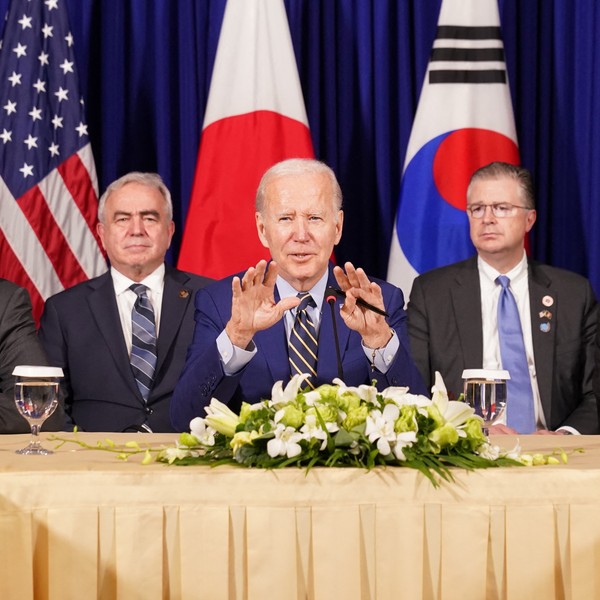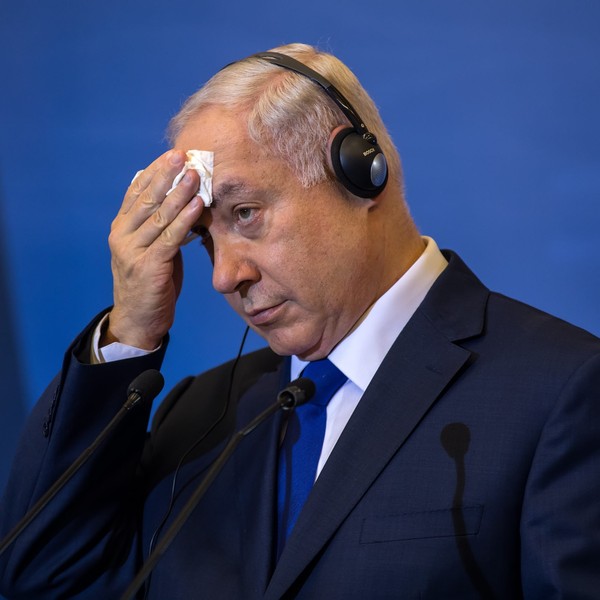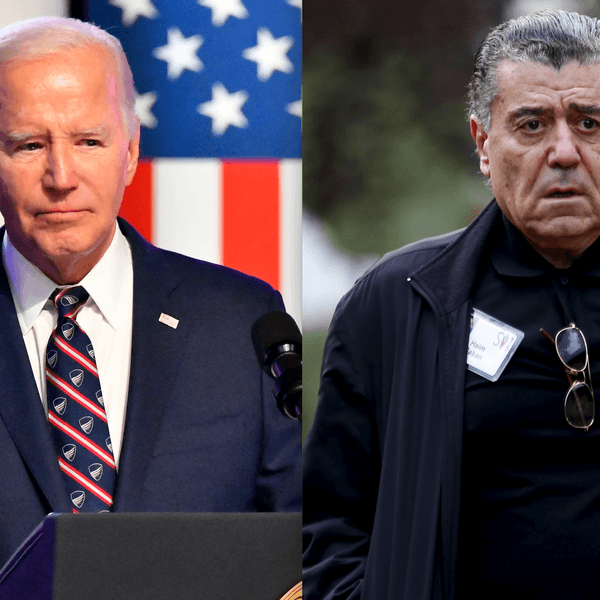Iran has told the United States that it will attack Israel directly unless the Biden administration secures a ceasefire in Gaza, according to an Arab diplomatic source who spoke with Jadeh Iran.
The ultimatum follows an Israeli attack on an Iranian diplomatic facility in Damascus last week. The source told Jadeh Iran that a ceasefire could also lead to progress on other aspects of the U.S.-Iran relationship. This comes following mediation by Oman between the U.S. and Iran.
The Iranian government has yet to confirm the news, and the Biden administration has flatly denied it. But if true, this reporting suggests a few important points.
First, it is clear that Iran wants to avoid a direct confrontation with Israel, but it cannot avoid it unless it secures a big win in the region. Tehran may suspect that a ceasefire is already in the offing, allowing it to use that as a pretext to both take credit for ending the war and avoid getting into a shootout with Israel.
But significant questions surround such an approach. We have heard for months that a ceasefire is close. Even if that is what the Iranians believe, setting this red line forces them to act if a ceasefire doesn't materialize. If they don't act on it, they will lose face twice: First, because Israel struck their consulate to begin with and, second, for having failed to move the U.S. even after threatening to strike Israel.
Second, this is very risky, but also rather clever. If the threat compels President Biden to finally put material pressure on Israel in order to avoid a regional war, Iran can take some credit for having saved the people of Gaza. If Biden dismisses the threat, Iran can point to not only a history of restraint vis-a-vis deadly Israeli strikes against Iranian targets in Syria and Lebanon, but also a willingness to hold its fire in return for Biden implementing a binding United Nations Security Council demand for a ceasefire, which also aligns with overwhelming global public opinion.
Third, this suggests that Iran may have figured out how to target Israel in a way that is proportionate and does not provide Israel with grounds for further escalation. Striking Israeli consulates or embassies in the region carries tremendous political risks. Striking the embassy in Baku, for instance, would unravel the very sensitive management of Iranian-Azeri relations in the midst of rising tensions in the Caucasus.
Attacking the embassy in Amman could unravel one of Iran's regional priorities: normalizing relations with Egypt and Jordan. Striking the Israeli embassy in Bahrain could unravel the Saudi-Iranian rapprochement. Striking Abu Dhabi would jeopardize the favorable and functioning modus vivendi Iran has with the UAE. And striking supposedly Israeli targets in Iraqi Kurdistan would be less than proportionate since those targets are not recognized as Israeli diplomatic premises.
Iran's options in the region are limited precisely because it has prioritized improving relations with its Arab neighbors. A more isolated Iran would have less to lose.
This may push Iran toward another option: a strike on Israel proper. This would, of course, be extremely risky, mainly because of the difficulty of calibrating a proportionate response (and impact) that doesn't provide Israeli Prime Minister Benjamin Netanyahu with the chance to force Biden to go along with further escalation. Tehran’s actions could compel Biden to repeat his disastrous “bearhug”of Israel.
In this scenario, Iran would likely strike with a barrage of ballistic missiles. But, given Tehran’s lack of experience with Israel's air defenses, it would likely have to fire off a large number to ensure that some would evade Israeli interceptions. If too many get through, however, the response would end up being disproportionate and could give Netanyahu an excuse to start a regional war. If none of the missiles get through, Iran will have further undermined its own deterrence.
It remains unclear how Biden will react to this Iranian threat. Of course, the optics of acting under Iranian duress are unacceptable to him. But he could also press Netanyahu for a ceasefire due to Israel's many other unacceptable transgressions and claim that the Iranian dimension had no impact on him.
Alternatively, he could say that he acted to save Israel from a disastrous war that the country’s highly unpopular prime minister was unwisely seeking to drag Israel and the U.S. into. Either way, the long list of strategic reasons why Biden must secure a ceasefire has just grown even longer — and that much more urgent.
